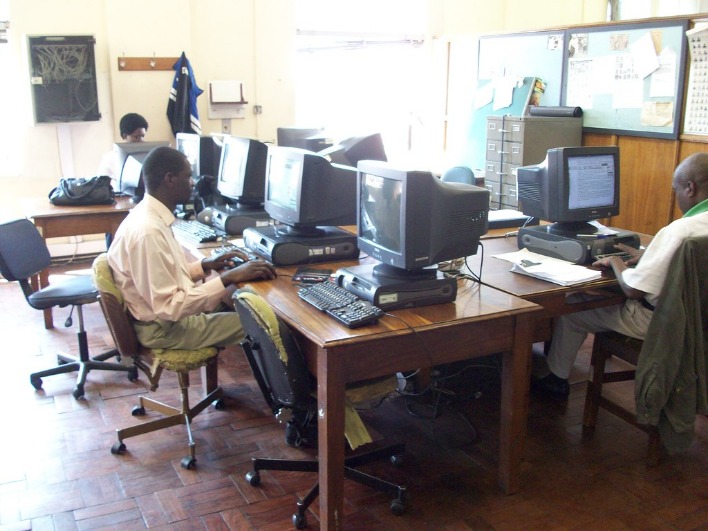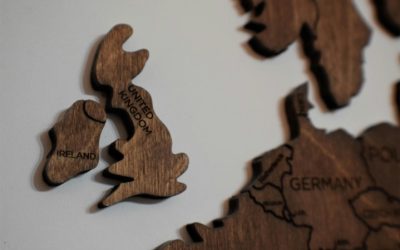Political Developments in Zimbabwe
The political landscape in Zimbabwe has experienced significant changes and developments over recent years, shaping the nation’s future trajectory. These political developments have been marked by shifts in leadership, elections, policy reforms, and ongoing efforts to address economic challenges. Understanding these changes is essential for grasping the current state of Zimbabwe and its prospects for stability and growth.
Recent Election Outcomes
Recent political developments in Zimbabwe have been marked by significant shifts following the latest elections. The elections saw the ruling party, ZANU-PF, securing a majority in parliament and President Emmerson Mnangagwa claiming victory in the presidential race. These results have solidified Mnangagwa’s leadership amidst ongoing debates over electoral transparency and fairness.
Independent observers and opposition parties have raised concerns regarding the conduct of the elections, citing issues such as voter intimidation and irregularities. Despite these challenges, the country’s political landscape remains dynamic, with ongoing discussions about reforms and governance reforms aimed at increasing democratic processes.
The outcome of these elections has important implications for Zimbabwe’s future, with efforts underway to foster economic recovery and improve diplomatic relations. Political analysts continue to monitor developments closely, emphasizing the need for national unity and inclusive governance to address Zimbabwe’s long-standing challenges.
Government Reforms and Policy Changes
The political landscape in Zimbabwe has experienced significant developments over recent years, marked by government reforms and policy shifts aimed at stabilizing the nation and fostering economic growth. Efforts to enhance governance have included constitutional amendments and initiatives to promote transparency and accountability within the ruling structures. These reforms seek to improve the democratic process, ensure fair elections, and reduce instances of corruption that have historically hampered progress in the country.
In terms of policy changes, Zimbabwe has undertaken significant steps to revive its struggling economy by implementing measures to attract foreign investment, liberalize trade policies, and improve the business environment. The government has also prioritized reforms in land ownership and distribution, addressing longstanding issues related to land reform programs. Furthermore, efforts to modernize public service delivery, healthcare, and education systems are key components of ongoing policy adjustments aimed at improving citizens’ welfare and creating a more resilient social infrastructure.
Recent political developments have also seen a focus on regional and international relations, with Zimbabwe seeking to strengthen diplomatic ties and participate more actively in regional organizations. This strategic engagement is intended to foster economic cooperation, enhance security arrangements, and promote stability within the Southern African region. Overall, these government reforms and policy changes reflect a deliberate effort by Zimbabwe to chart a sustainable and inclusive path forward amidst ongoing political and economic challenges.
Leadership Changes and Political Stability
Recent political developments in Zimbabwe have marked a period of significant transition, reflecting both changes in leadership and efforts to stabilize the nation’s governance. Over the past year, the country has witnessed shifts at the highest levels of government, with new leaders emerging to steer Zimbabwe towards a more unified political direction. These leadership changes are seen as pivotal in addressing longstanding economic and social challenges facing the nation.

Despite these shifts, maintaining political stability remains a central focus for Zimbabwean authorities. The government has implemented various measures to foster peace and unity among different political factions, aiming to reassure both domestic and international stakeholders. While some concerns about political unrest persist, ongoing dialogue and reforms suggest a cautious optimism about Zimbabwe’s trajectory towards sustained stability and equitable development.
Economic Updates and Challenges
Zimbabwe continues to navigate a complex financial landscape marked by economic updates and ongoing challenges. As the nation strives to stabilize its economy, various factors such as inflation, currency fluctuations, and development initiatives play a crucial role in shaping its future. Keeping abreast of these updates is essential for understanding the broader economic trajectory of Zimbabwe and its impact on the local and regional levels.
Inflation Rates and Currency Stability
The economic landscape in Zimbabwe continues to face significant updates and challenges, shaping its financial stability and growth prospects. Inflation rates remain a critical concern, with recent figures indicating persistent high levels that impact everyday life and business operations. Currency stability also poses ongoing difficulties, as fluctuations and devaluations affect investor confidence and economic planning. Efforts to control inflation and stabilize the currency are central to Zimbabwe’s broader economic strategy, aiming to create a more resilient and sustainable financial environment for its citizens and enterprises.
Major Investment Projects
Zimbabwe continues to face significant economic updates and challenges as it navigates complex financial reforms and structural adjustments. Inflation remains a critical issue, impacting both consumers and businesses, while foreign currency shortages hinder import and export activities. Efforts to stabilize the economy include monetary policy adjustments and efforts to attract foreign direct investment, though these measures face ongoing obstacles.
Among major investment projects, Zimbabwe has launched several initiatives aimed at boosting its mineral sector, including expansions in platinum, diamond, and gold mining. Infrastructure development projects such as the refurbishment of road networks and energy generation facilities are also underway to support economic growth. These projects are essential for diversifying the economy and creating employment, but their success hinges on sustained political stability and the implementation of effective policies.
Unemployment and Poverty Levels
Zimbabwe is currently facing significant economic challenges that impact various aspects of the country’s development. The nation’s economy has experienced fluctuations due to factors such as inflation, currency instability, and limited access to foreign investment. These issues contribute to a fragile economic environment that hampers growth and development.
Unemployment remains a critical concern, with many citizens unable to find stable jobs, leading to increased frustration and economic hardship. High unemployment rates also exacerbate poverty levels across urban and rural areas, making it difficult for many families to meet basic needs. Poverty, in turn, affects access to essential services such as healthcare, education, and housing, creating a cycle of deprivation that is hard to break.
Efforts by the government to address these challenges include economic reforms and initiatives aimed at attracting investment and stabilizing the currency. However, sustainable progress requires comprehensive policies and support systems that promote job creation and poverty reduction. The resilience of the people and ongoing reforms will be crucial in overcoming these economic hurdles and securing a more stable future for Zimbabwe.
Social and Cultural Highlights
Zimbabwe’s social and cultural landscape is rich and vibrant, reflecting a blend of ancient traditions and modern influences. From colorful festivals and traditional music to diverse culinary delights, the country’s cultural highlights offer a unique glimpse into its heritage. These elements not only foster a sense of community but also showcase Zimbabwe’s resilience and evolving identity in the contemporary world.
Educational Initiatives and Reforms
Zimbabwe has experienced significant social and cultural developments alongside numerous educational initiatives and reforms over the years. These efforts aim to foster national identity, preserve heritage, and enhance literacy and skills among citizens. Cultural festivals and traditional celebrations continue to play a vital role in uniting communities and showcasing Zimbabwe’s rich history. Educational reforms have focused on increasing access to quality education, improving infrastructural facilities, and integrating technological advancements into the curriculum. Programs such as the Basic Education Assistance Module (BEAM) and initiatives to boost STEM education exemplify Zimbabwe’s commitment to empowering the youth and addressing skills gaps. Furthermore, efforts to promote cultural awareness and language preservation, including the promotion of indigenous languages in schools, reflect the nation’s dedication to strengthening its social fabric and cultural legacy.
Healthcare System Developments
Zimbabwe has experienced significant social and cultural developments in recent years, reflecting a vibrant and diverse heritage. Efforts to preserve traditional music, dance, and artisanal crafts have gained momentum, fostering a renewed sense of national pride. Educational initiatives and community programs have also contributed to greater social cohesion and awareness of cultural identity. Additionally, the country continues to celebrate its rich history through festivals and commemorations that attract both locals and tourists.
In terms of healthcare system developments, Zimbabwe has made progressive strides to improve access and quality of medical services. Investments in healthcare infrastructure, including the refurbishment of clinics and hospitals, aim to reduce disparities between urban and rural areas. The government has prioritized the training and retention of healthcare professionals, alongside partnerships with international organizations to combat disease outbreaks such as malaria and HIV/AIDS. These efforts are crucial in strengthening the resilience of Zimbabwe’s healthcare system in the face of ongoing challenges.
Major Cultural Events and Festivals
Zimbabwe offers a rich tapestry of social and cultural highlights that reflect its diverse heritage and vibrant traditions. The country celebrates a variety of major cultural events and festivals throughout the year, showcasing its history, music, dance, and artisanal craftsmanship. Notable festivals include the Harare International Festival of the Arts (HIFA), which draws artists from around the world to perform music, drama, and visual arts, fostering cultural exchange and creativity. The Zimbabwe International Trade Fair (ZITF) also serves as a significant event, promoting trade and cultural dialogue. Traditional ceremonies like the Ndebele and Shona festivals emphasize community spirit, ancestral reverence, and cultural continuity. These events not only preserve Zimbabwe’s historical legacy but also serve as platforms for social cohesion and national pride, highlighting the country’s dynamic cultural landscape to both locals and visitors alike.
Security and Public Safety
Security and public safety are essential components of a stable and thriving society, ensuring that citizens can live, work, and participate in community life without fear. In the context of Zimbabwe, ongoing efforts to enhance security measures and promote public safety play a vital role in addressing challenges and fostering development. Staying informed about these initiatives helps to understand how the nation is working to protect its people and maintain social order amidst changing circumstances.
Law Enforcement Operations
Security and public safety are critical components of maintaining stability and order in Zimbabwe, especially as the nation navigates various socio-economic challenges. Effective law enforcement operations ensure the protection of citizens, uphold the rule of law, and safeguard critical infrastructure. In recent developments, Zimbabwean police and security agencies have intensified their efforts to combat crime, including illicit activities such as smuggling, illegal mining, and drug trafficking. These operations often involve coordinated actions across different regions to dismantle criminal networks and restore public confidence.
Law enforcement agencies also play a vital role in managing public demonstrations and preventing unrest by ensuring that protests remain peaceful and within legal boundaries. Additionally, they engage in community policing initiatives to foster trust and cooperation between residents and authorities. Training programs to enhance the professionalism and effectiveness of officers are ongoing, aligning with efforts to improve public safety standards. As Zimbabwe continues to work towards stability and development, maintaining robust security and law enforcement operations remains a priority for the government and its citizens.

Border Security and Immigration
Security and public safety remain top priorities in Zimbabwe, with ongoing efforts to strengthen border security and manage immigration effectively. The government has implemented various policies aimed at preventing illegal crossings, trafficking, and other cross-border crimes to protect citizens and maintain national stability. Enhancing border surveillance systems and increasing collaboration with neighboring countries are crucial steps in this process.
Within the country, initiatives to improve public safety include community policing programs, stricter law enforcement measures, and public awareness campaigns about crime prevention. These efforts seek to foster a safer environment for residents and visitors alike.
Regarding immigration, Zimbabwe continues to monitor entry and exit points to regulate lawful movement while addressing challenges related to illegal immigration. Visa policies and border controls are regularly reviewed to adapt to emerging threats and ensure national security. Overall, these measures reflect Zimbabwe’s commitment to maintaining a secure and orderly society amidst regional and international developments.
Community Policing Efforts
Community policing efforts play a vital role in enhancing security and public safety across Zimbabwe, fostering stronger relationships between law enforcement agencies and local communities. These initiatives encourage residents to collaborate actively with police to identify and address safety concerns, ultimately creating a more secure environment.
- Community members participate in neighborhood watch programs, reporting suspicious activities and collaborating with police officers to prevent crime.
- Local police stations organize awareness campaigns on crime prevention, promoting education and vigilance among residents.
- Public safety initiatives focus on youth engagement, mentorship programs, and activities that discourage criminal behavior among young people.
- Efforts are made to improve police visibility in communities, increasing trust and cooperation between residents and law enforcement.
- Partnerships with community organizations and local leaders enhance the effectiveness of crime reduction strategies throughout Zimbabwe.
Environmental and Agricultural News
Stay informed with the latest updates on environmental and agricultural developments in Zimbabwe. This news covers crucial events, policies, and innovations shaping the country’s natural landscapes and farming practices. Discover how local efforts are addressing climate challenges and promoting sustainable agriculture to ensure a greener future for Zimbabwe.
Climate Change Impact on Agriculture
Recent developments in Zimbabwe highlight the growing impact of climate change on the agricultural sector, which is vital for the country’s economy and food security. Unpredictable weather patterns, prolonged droughts, and shifting rainfall timing have significantly affected crop yields and livestock productivity across the region. Farmers are increasingly facing challenges in planning and sustaining their livelihoods due to these environmental changes.
Efforts are underway to adapt agricultural practices to the changing climate. These include the adoption of drought-resistant crop varieties, conservation farming techniques, and improved water management systems. Such initiatives aim to enhance resilience and ensure sustainable food production amid environmental uncertainties.
- Climate change has led to decreased maize and small grain yields, threatening Zimbabwe’s staple food security.
- Prolonged droughts have reduced water availability for irrigation and livestock, impacting rural communities.
- Innovative farming practices and government support are critical for mitigating climate-related risks.
- Regional collaboration is essential to develop climate-smart agriculture policies and share best practices.
- Monitoring and early warning systems are being enhanced to help farmers anticipate and adapt to weather variabilities.
Land Reforms and Usage
Recent developments in Zimbabwe highlight significant progress in environmental conservation and agricultural reform. The government has implemented new land utilization policies aimed at optimizing land productivity while preserving ecological balance. These reforms encourage sustainable farming practices and equitable land distribution to empower smallholder farmers and boost food security. Additionally, efforts are being made to restore degraded landscapes through reforestation projects and soil conservation initiatives. Such measures are vital for ensuring long-term environmental health and supporting Zimbabwe’s agricultural economy, which remains crucial for the nation’s development.
Conservation Projects and Wildlife Protection
Zimbabwe continues to make strides in environmental and agricultural sectors through several conservation projects aimed at preserving natural resources and promoting sustainable farming practices. Recent initiatives focus on protecting endangered wildlife species, restoring degraded landscapes, and supporting local farmers with eco-friendly technologies. These efforts are crucial in maintaining biodiversity and ensuring long-term food security for communities across the country.
Conservation projects such as land rehabilitation programs and wildlife corridors are helping to mitigate human-wildlife conflicts and facilitate animal migration. Government and non-governmental organizations are collaborating to implement reforestation campaigns and research on climate resilience. In addition, awareness campaigns are encouraging communities to participate actively in protecting Zimbabwe’s rich natural heritage.
Wildlife protection remains a priority, with measures taken to combat poaching and illegal wildlife trade. Recent arrests of poachers and increased patrols in protected areas have contributed to the stabilization of populations of iconic species such as elephants and rhinos. These efforts not only preserve Zimbabwe’s biodiversity but also enhance eco-tourism, which is a vital economic contributor. Overall, these environmental initiatives showcase Zimbabwe’s commitment to safeguarding its natural resources for future generations.
International Relations and Diplomatic Affairs
International Relations and Diplomatic Affairs play a crucial role in shaping the interactions between countries, fostering cooperation, resolving conflicts, and promoting national interests on the global stage. These fields involve the management of diplomatic relationships through negotiation, dialogue, and strategic partnerships. In the context of Zimbabwe, understanding the nuances of its international engagements and diplomatic strategies offers valuable insights into the nation’s efforts to navigate regional and global dynamics.
Zimbabwe’s Relations with Neighboring Countries
Zimbabwe maintains complex and evolving relations with its neighboring countries, reflecting both regional cooperation and historical challenges. Its interactions with South Africa, Botswana, Zambia, Mozambique, and others are shaped by economic interests, border security, and shared cultural ties. Zimbabwe has traditionally collaborated with its neighbors on trade, migration, and regional development initiatives through organizations like the Southern African Development Community (SADC). However, political differences and economic issues sometimes create tensions, impacting diplomatic relations. Despite these challenges, Zimbabwe continues to engage actively in regional diplomacy to promote stability, economic growth, and cooperation within Southern Africa. Recent developments reveal efforts to strengthen bilateral ties, address cross-border concerns, and foster regional integration as part of its ongoing diplomatic priorities.
Participation in Regional Organizations
Participation in regional organizations plays a vital role in shaping Zimbabwe’s international relations and diplomatic strategies. Through active involvement in entities such as the Southern African Development Community (SADC) and the African Union (AU), Zimbabwe seeks to promote regional stability, economic integration, and collective security. Engagement in these organizations allows Zimbabwe to collaborate on common issues, address regional challenges, and strengthen diplomatic ties with neighboring countries.
Zimbabwe’s participation in regional forums also provides platforms to advocate for national interests, secure development aid, and enhance political dialogue. By contributing to peacekeeping missions and regional initiatives, Zimbabwe demonstrates its commitment to regional stability and cooperation. Additionally, involvement in regional organizations helps Zimbabwe align its foreign policy with continental priorities and navigate the complex dynamics of African diplomacy.
International Aid and Partnerships
Zimbabwe’s recent developments in international relations and diplomatic affairs highlight its ongoing efforts to strengthen diplomatic ties and expand international partnerships. The country has engaged in multiple bilateral and multilateral initiatives aimed at fostering economic growth and regional stability. International aid has played a vital role in supporting Zimbabwe’s development projects, particularly in healthcare, education, and infrastructure. Collaborations with international organizations and neighboring countries have facilitated the implementation of sustainable programs, promoting socio-economic progress. Zimbabwe’s diplomatic engagements also emphasize regional integration within the Southern African Development Community and broader efforts to attract foreign direct investment. These international partnerships are crucial for Zimbabwe’s quest to overcome economic challenges and achieve long-term stability and growth.





0 Comments